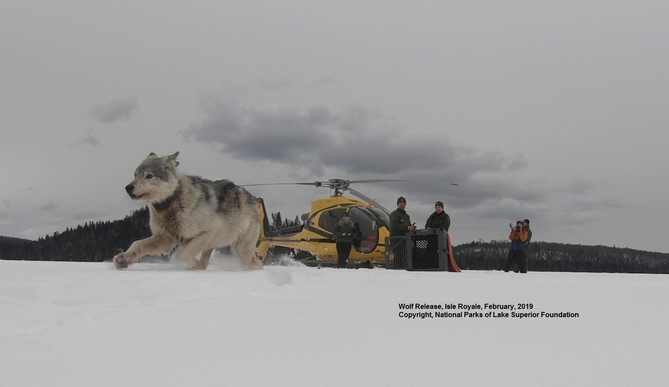ISLE ROYALE, Michigan — Some Ontario wolves are roaming in foreign territory after an aerial transfer from the Canadian to the American side of Lake Superior.
During what Isle Royale National Park officials described as "a narrow weather window between storms," Ontario's Ministry of Natural Resources and Forestry last week relocated four wolves to the U.S. park, located 50 kilometres south of Thunder Bay.
They included a 42-kilogram male and 30-kilogram female from the same pack, captured with net guns on the mainland in the Wawa area, and two male wolves trapped on Michipicoten Island. One of the latter pair was the alpha male from the Michipicoten pack.
The captures were completed using MNRF aircraft and personnel, supported by an Ontario veterinarian and two American veterinarians.
Mark Romanski, Division Chief of Natural Resources for Isle Royale National Park, said he was "blown away by the resilience of these wolves who within hours after undergoing capture and handling and arriving on Isle Royale, immediately got on the trail of their pack mates."
Romanski added "These large males, all around 90 pounds (41 kilograms) will almost certainly know what to do when they encounter a moose."
As with other wolves transferred to the island last fall, the newcomers were fitted with radio transmission collars to help researchers track their movements.
The U.S. park service decided last year to restore predation to Isle Royale because it is considered an important component of the ecosystem.
